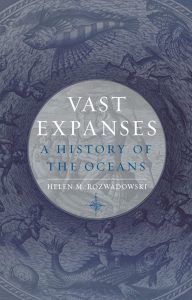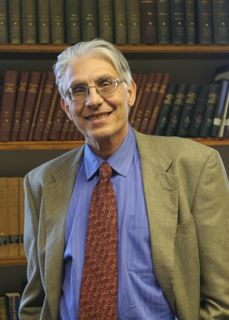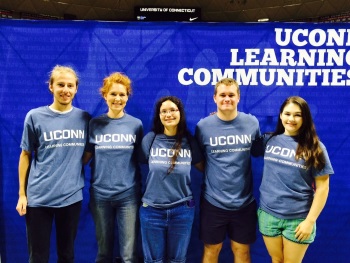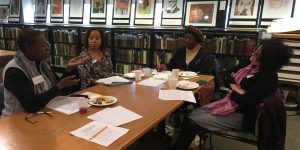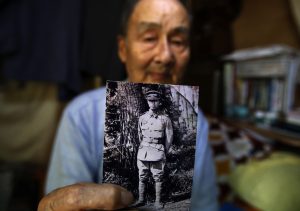by undergraduate student, Rohit Kandala ’19
On March 15, 2019, the world stood in silence as 50 people were massacred and 50 more were injured in the Christchurch mosque shootings. I remember waking up that morning and staying silent for a couple hours as the news reports started to pour in. Throughout the entire ordeal, what saddened me most was that Christchurch wasn’t a surprise—and no one can pretend that it was a coincidence.
Luckily, most media outlets no longer phrase the systematic and global problem of white supremacy as a “rising threat”—it’s already clear that it’s here and it’s not a fringe movement. But, this article isn’t about white supremacy as much as it is about how history has been kidnapped and corrupted by this movement to serve its perverse needs. Misinformation is the problem.
Before I go further, I have two conditions: I will not list the perpetrator’s name as that is exactly what he and his movement want and I will list two assumptions I have:
1. Currently, History is expressed through more mediums than ever. While, K-12 education is still formative, online mediums like Facebook & YouTube are increasingly used more often either for education or entertainment. Unfortunately, most of weaponized history also occurs on these new and less regulated platforms.
2. Fortunately or unfortunately, History is fluid & is constantly re-shaping itself. This results in different interpretations over time, and people can exploit that to create the representation they’d like.
Both these statements, which I hold to be true, have wide-ranging effects on History and how it’s understood.
First off, the fact that history is now more accessible because of advances in digital communications is a great thing! In fact, it’s a cost-efficient method to reverse the worrying trend of apathy for history amongst the public. I am an adamant supporter of using YouTube as a social media platform for history enthusiasts and professionals alike—it’s the future that history needs to adapt to. But, the accessibility of these services also allow figures such as Alex Jones (who had 2,431,237 subscribers before YouTube disbanded his channel[1]), Stefan Molyneux (911,000 subscribers[2]), and Sargon of Akkad (927,000 subscribers[3]) to flourish and promote their “free-thinking and rational community”.
That’s BS.
All these channels are not the same, but they are enablers for white supremacists to thrive in today’s information age. No channel wants to outright promote “hate speech” or “racism” that violate community guidelines—but they construct bloated arguments with a thin sprinkle of facts that let the viewer, an impressionable male usually in their early-to-mid 20s, “come” to the conclusion that white supremacy is supported by history. For example, “Replacement Theory”—which motivated the perpetrator to do what he did—is a very popular theory covered by YouTuber Lauren Southern (she has 699,000 subscribers while the video has 647,119 views[4]). But, these channels grow even more impactful on online messaging boards like Reddit and 4chan—which are far less moderated and thus even more crass.
This brings me to my second point: the fluid nature of history. Historians rarely agree even on the most minute of details, but we do agree that history is subjective and dependent on the person who wrote it. At UConn, we learn this in our HIST 2100, “Historian’s Craft” class in order to become better historical thinkers. No serious historian thinks of history as deterministic and if they do—they’re probably from the 19th century. This ability to manipulate information like this allows for white supremacy opinion leaders to cater to their audience while barely carrying the “I’m a legitimate historian” card. Moreover, if they’re actually judged by the same intellectual rigor students and academics are put through—they can claim to be “entertainers”. You cannot claim to be both, and if you do, you are none of those things.
This point brings me to my solution to the misinformation problem—and it is not an easy problem to fix. Yet, one thing is clear, accessibility should not be tampered with. It is the internet’s, and by extension, YouTube’s greatest strength. Rather, the solution lies in education. As stated above, students of history, if studied seriously, are subjected to historical analysis standards. A good analysis would have high quality sources, a strong thesis that is prevalent through the entire paper, and an overwhelming amount of evidence. How does this apply to online spaces like YouTube? For example, the quickest way to debunk an argument in favor of scientific racism is to evaluate the quality of the sources. Oftentimes, they are poor in quality and that is more than enough to de-rail said argument. Historical analysis is a learned skill and educating (or even simply maintaining an online presence) people about it could go a long way.
Again, I am hopeful—probably foolishly so. At least, the mass media is starting to acknowledge the historical misinformation in the digital space. A recent article by the NY Times succinctly and clearly defined the problem behind “Replacement Theory” and how it’s a continuation of the problem. But, pointing the problem simply won’t do. White supremacists don’t read the NY Times or traditional media outlets, they go on YouTube, Facebook, Reddit, 4chan, Twitter and other networks[5].
That’s why I insisted on posting this on The History Department’s website at UConn—my audience is my professors, grad/Ph.D students, and (some) undergraduates. We are trained to think historically at a time when our discipline is being trampled because we haven’t properly adapted to digital spaces (although there’s been some recent breakthroughs in public history).
It’s time to take back history to what it’s about. We are all interested in history for various reasons. Some of us are obsessed with maps, some with battle dates, some with political history, and some with area studies. But, we all appreciate the past for what it is, and it’s our duty to inform others of worrying trends, misinformation, and hopefully how great studying history can be. History isn’t about hate or love—it’s about empathy and “how”.
If not, New Zealand—a country that continually strives to be better for all its peoples—and others like it will take the fall. Please—let this be the last. When someone asks me to write about this period 50 years from now, I’d like to say that New Zealand was the turning point when we historians banded together and proactively swept away the pseudo-intellectualism of white supremacy.
And if the problem still seems like a world away and a tiny threat (even though the internet isn’t dependent on location)—just take a peek in your backyard[6].
[1] “The Alex Jones Channel”, Channel User Statistics, Socialblade, accessed March 26, 2019, https://socialblade.com/youtube/user/thealexjoneschannel
[2] “Stefan Molyneux”, Channel User Statistics, Socialblade, accessed March 26, 2019, https://socialblade.com/youtube/user/stefbot
[3] “Sargon of Akkad”, Channel User Statistics, Socialblade, accessed March 26, 2019, https://socialblade.com/youtube/user/sargonofakkad100
[4] “Lauren Southern”, Channel User Statistics, Socialblade, accessed March 26, 2019, https://socialblade.com/youtube/channel/UCla6APLHX6W3FeNLc8PYuvg
[5] Emma Grey Ellis, “The Year the Alt-Right Went Underground,” WIRED, January 1, 2019, https://www.wired.com/story/alt-right-went-underground/
[6] Rachel Philipson, “Known white nationalist organization flyers appear on UConn campus”, The Daily Campus, March 14, 2019, http://dailycampus.com/stories/2019/3/14/known-white-nationalist-organization-flyers-appear-on-uconn-campus
